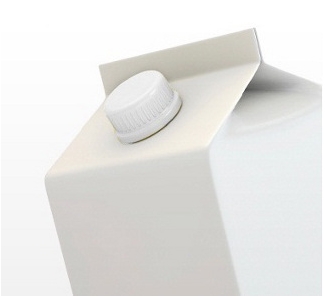
As food and beverage cartons become more common on grocery store shelves, they are also becoming more common in curbside recycling bins. In 2009, a group of carton manufactures joined forces as the Carton Council to increase carton recycling availability in the U.S. In just three years, the number of households who can recycle cartons has grown from 18 percent to now more than 40 percent, an increase of 128 percent. This represents more than 47.9 million U.S. households.
"In these budget-strapped times, the private sector is increasingly identifying solutions and ways to help the public sector meets its sustainability goals," says Jason Pelz , vice president, environment, Tetra Pak North America, and vice president of recycling projects for Carton Council of North America. "Our work through the Carton Council is a great example of how business competitors can find common ground and work together to solve big challenges, which in our case is the lack of access to recycle what we know is a very environmentally friendly package-the carton."
In 2009, 21 million households could recycle shelf-stable and refrigerated cartons, which contain common food and beverage items like milk, broth and juice. Now, more than double that amount are able to recycle cartons through their community's recycling programs, including programs in Dallas, Philadelphia, Milwaukee, San Diego and Los Angeles. Today, 43 states and 62 of the top 100 U.S. cities accept cartons. Consumers can find out if their program is included by visiting www.recyclecartons.com.
"We know firsthand the economic, social and environmental power in recycling cartons and wholeheartedly support the Carton Council's efforts to grow carton recycling access across the country," says Jeff Fielkow, executive vice president of revenue and growth with ReCommunity, a recycling and recovery company focused on reducing the volume of landfilled waste. "The Carton Council has proven to be a crucial and impactful partner in expanding access to recovering the valuable materials contained in cartons."
Cartons are a highly recyclable material. In fact, the paper fiber contained in cartons is extremely valuable and useful in making new products when recycled. Depending on what area of the country the cartons are recycled in and which paper mill they are sent to, recycled cartons can be made into office paper and tissues, and can even be used as one of the materials for wallboard manufacturing. The fact is, there is a high demand for recycled cartons, and recycling cartons increases waste diversion from landfills while still offering a potential revenue stream from the sale of cartons.
Cartons offer a sustainable packaging solution. In addition to being made mainly from a renewable resource, cartons are lightweight and have a compact packaging design. They also have a low carbon footprint throughout their life cycle, allowing them to be shipped more efficiently, and in the case of shelf-stable cartons, they can be shipped and stored without requiring refrigeration, further reducing their carbon impact.
"We know from experience that residents respond more favorably to recycling when they are given opportunities to include more materials," says Dale Gubbels , CEO of Firstar Fiber, a materials recovery facility (MRF) that handles residential recycling collection for the City of Omaha, NE. "With the Carton Council's assistance, we were able to secure guaranteed market outlets for cartons, which in turn helped us convince the City of Omaha to allow the inclusion of cartons in the recycling program."
While the 40 percent access milestone is being celebrated in communities across the country, the Carton Council has its eyes set on even bigger numbers, with the goal of having carton recycling as widely accessible as possible.
"Our efforts in the U.S. will not stop at 40 percent access. Now, we see 50 percent on the horizon and are aiming much higher," says Pelz. "We want cartons to be as common in curbside bins as they are on store shelves."





